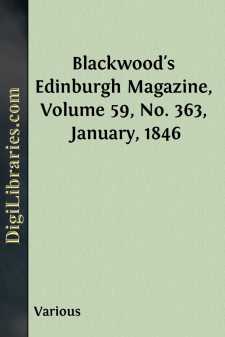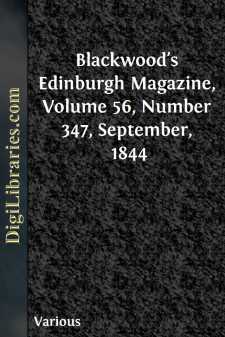Categories
- Antiques & Collectibles 13
- Architecture 36
- Art 48
- Bibles 22
- Biography & Autobiography 813
- Body, Mind & Spirit 142
- Business & Economics 28
- Children's Books 14
- Children's Fiction 11
- Computers 4
- Cooking 94
- Crafts & Hobbies 4
- Drama 346
- Education 46
- Family & Relationships 57
- Fiction 11829
- Games 19
- Gardening 17
- Health & Fitness 34
- History 1377
- House & Home 1
- Humor 147
- Juvenile Fiction 1873
- Juvenile Nonfiction 202
- Language Arts & Disciplines 88
- Law 16
- Literary Collections 686
- Literary Criticism 179
- Mathematics 13
- Medical 41
- Music 40
- Nature 179
- Non-Classifiable 1768
- Performing Arts 7
- Periodicals 1453
- Philosophy 64
- Photography 2
- Poetry 896
- Political Science 203
- Psychology 42
- Reference 154
- Religion 513
- Science 126
- Self-Help 84
- Social Science 81
- Sports & Recreation 34
- Study Aids 3
- Technology & Engineering 59
- Transportation 23
- Travel 463
- True Crime 29
Sort by:
by:
Various
SIR WILLIAM FOLLETT. The disappearance from the legal hemisphere of so bright a star as the late Sir William Follett, cast a gloom, not yet dissipated, over the legal profession, and all classes of society capable of appreciating great intellectual eminence. He died in his forty-seventh year; filling the great office of her Majesty's Attorney-general; the head and pride of the British Bar; a...
more...
by:
Various
ON PUNISHMENT. How to punish crime, and in so doing reform the criminal; how to uphold the man as a terror to evil-doers, and yet at the same time be implanting in him the seeds of a future more happy and prosperous life—this is perhaps the most difficult problem of legislation. We are far from despairing of some approximation to a solution, which is the utmost that can be looked for; but we are also...
more...
by:
Various
MONTESQUIEU. Montesquieu is beyond all doubt the founder of the philosophy of history. In many of its most important branches, he has carried it to a degree of perfection which has never since been surpassed. He first looked on human affairs with the eye of philosophic observation; he first sought to discover the lasting causes which influence the fate of mankind; he first traced the general laws which...
more...
by:
Various
It might have been expected, that after the march into Bavaria had demonstrated the military genius of the Duke of Marlborough, and the battle of Blenheim had in so decisive a manner broken the enemy's power, the principal direction of military affairs would have been entrusted to that consummate commander; and that the Allied cabinets, without presuming to interfere in the management of the...
more...
by:
Various
ENGLISH LANDSCAPE—CONSTABLE. The appearance of the second edition of Leslie's Life of Constable invites attention to this truly English and original artist. We have read this volume with much interest. It is a graceful homage paid by a great living painter to the memory of one who is no more: a kindly, and, as we believe, an honest testimony to the moral and professional worth of one whose works...
more...
by:
Various
PÚSHKIN, THE RUSSIAN POET. No. I. Sketch of Púshkin's Life and Works, by Thomas B. Shaw, B.A. of Cambridge, Adjunct Professor of English Literature in the Imperial Alexander Lyceum, Translator of "The Heretic," &c. &c. Among the many striking analogies which exist between the physical and intellectual creations, and exhibit the uniform method adopted by Supreme Wisdom in the...
more...
by:
Various
Never was there a juster observation, than that, in ordinary times, in the same state, genius moves in a circle; originality is lost amidst imitation; we breathe thought not less than vital air. This is more especially the case in all those branches of opinion or philosophy which relate to internal economy, or the social concerns of men. There, it is not merely abstract principle, or disinterested...
more...
by:
Various
VIRGIL, TASSO, AND RAPHAEL. Originality of conception and fidelity of observation in general mark the efforts of genius in the earlier ages of society; and it is then, accordingly, that those creative minds appear which stamp their own impress upon the character of a whole people, and communicate to their literature, in the most distant periods, a certain train of thought, a certain class of images, a...
more...
by:
Various
In 1821, as a contribution to a periodical work—in 1822, as a separate volume—appeared the "Confessions of an English Opium-Eater." The object of that work was to reveal something of the grandeur which belongs potentially to human dreams. Whatever may be the number of those in whom this faculty of dreaming splendidly can be supposed to lurk, there are not perhaps very many in whom it is...
more...
by:
Various
M. LOUIS BLANC M. Louis Blanc, a democratic journalist, with all, and perhaps more than the usual talents of the Parisian journalist—with all, and more than the usual faults of one—has undertaken to write the history of his country, during and since the revolution of 1830. What can we expect to be the result of such an undertaking? What can we expect from a man who sits down to a task of this...
more...











